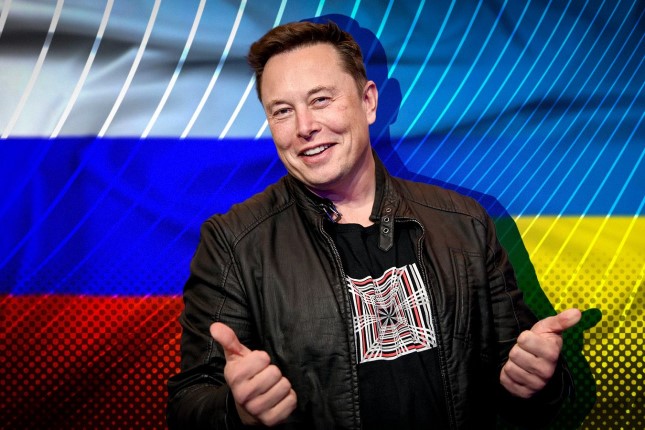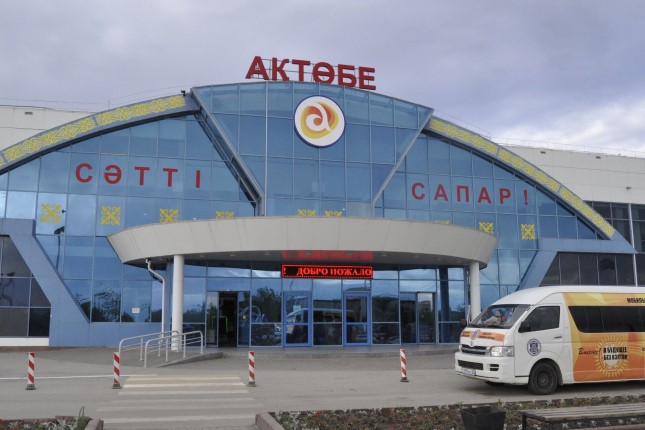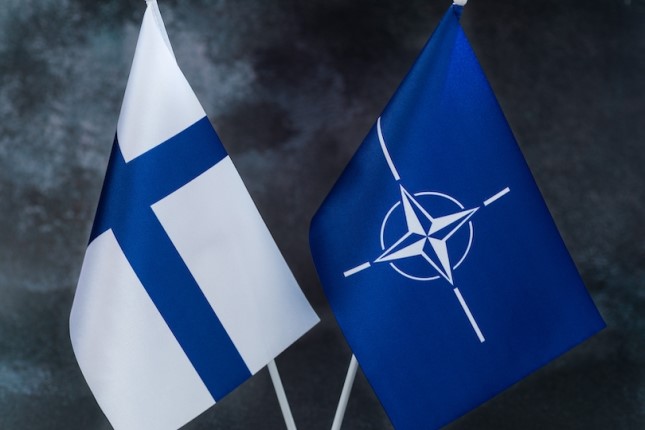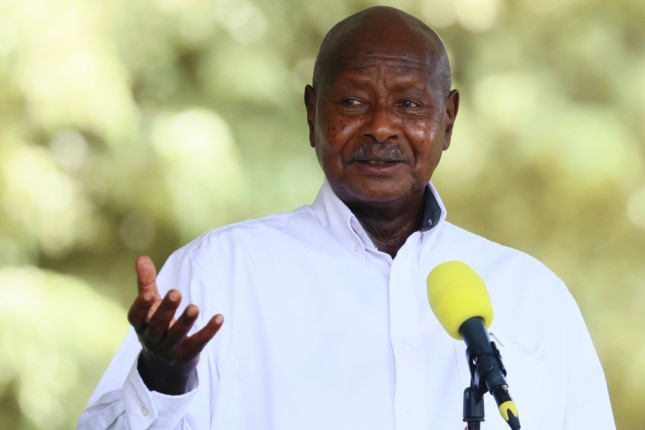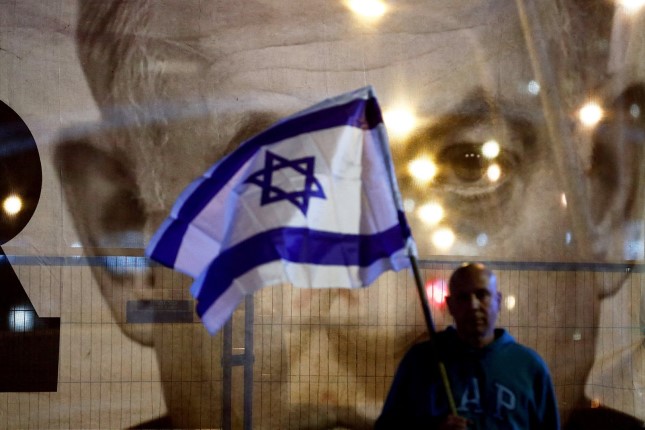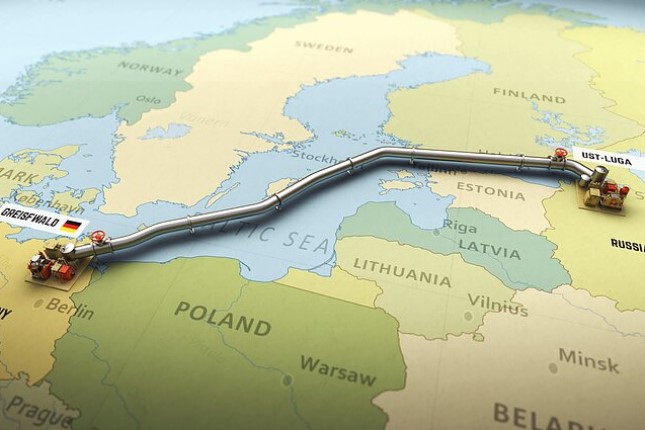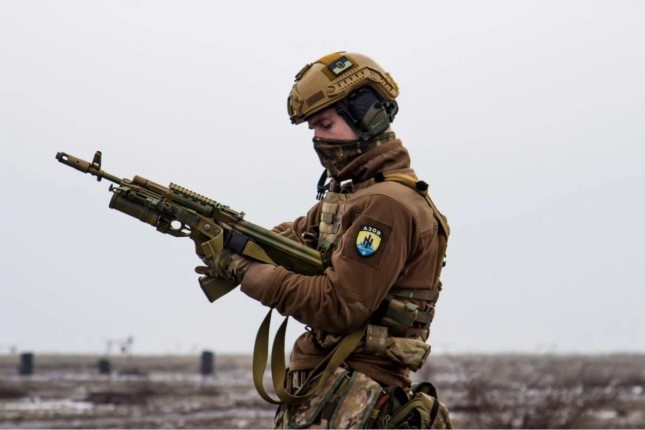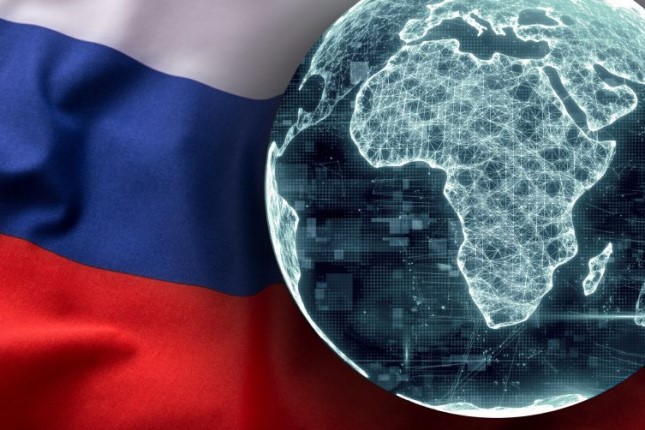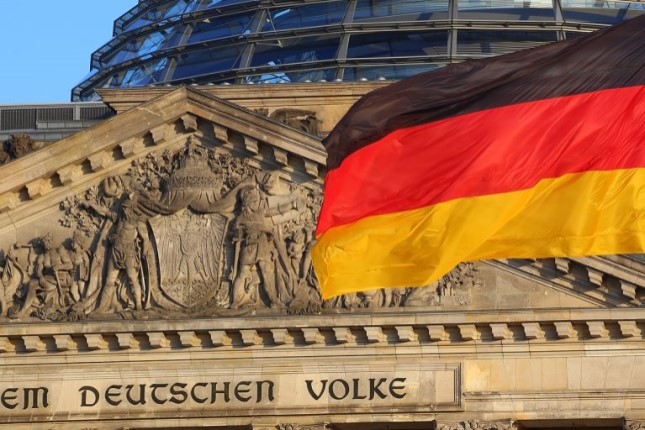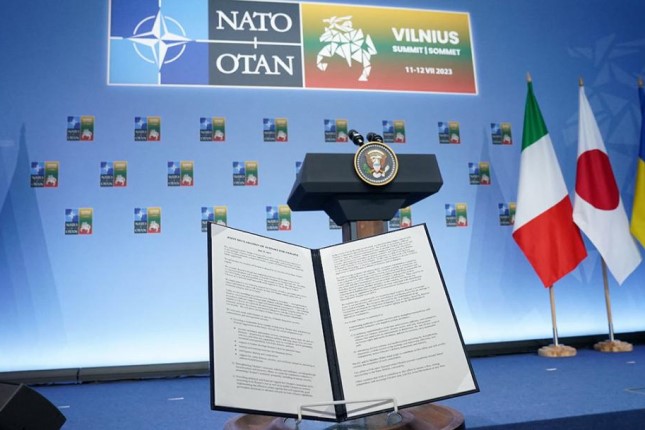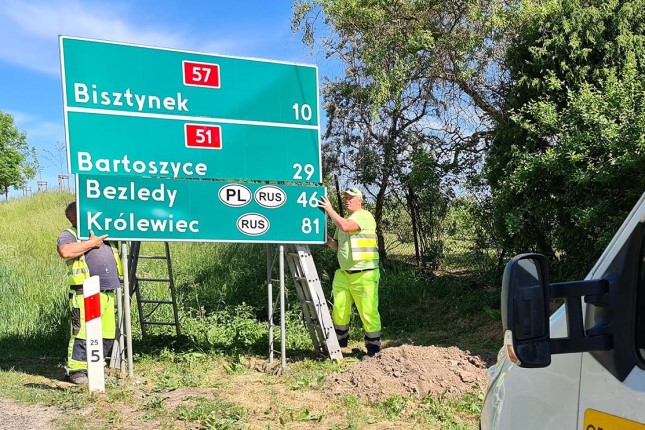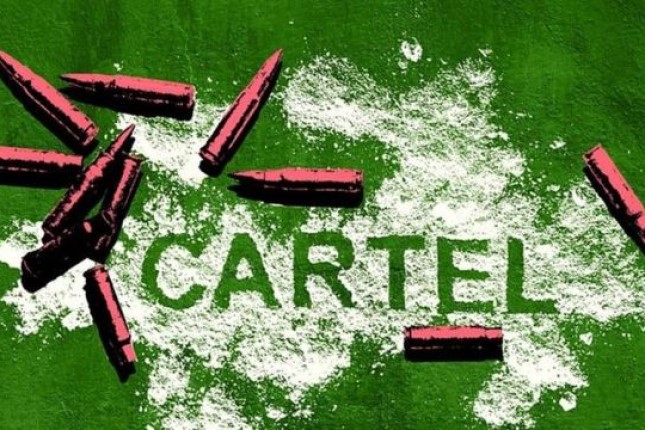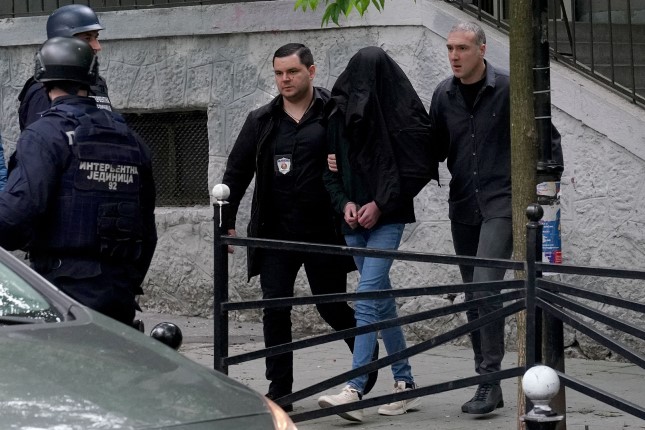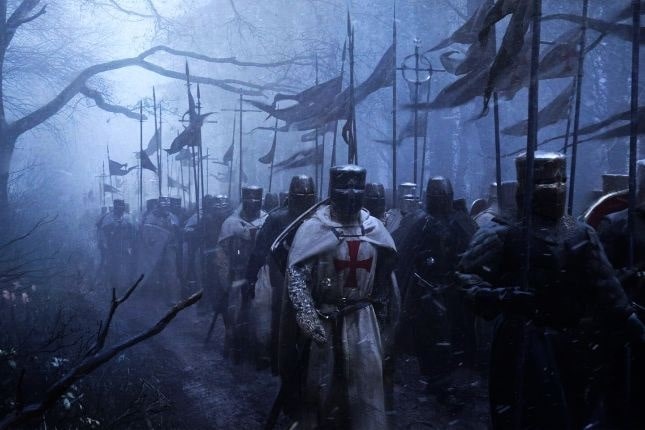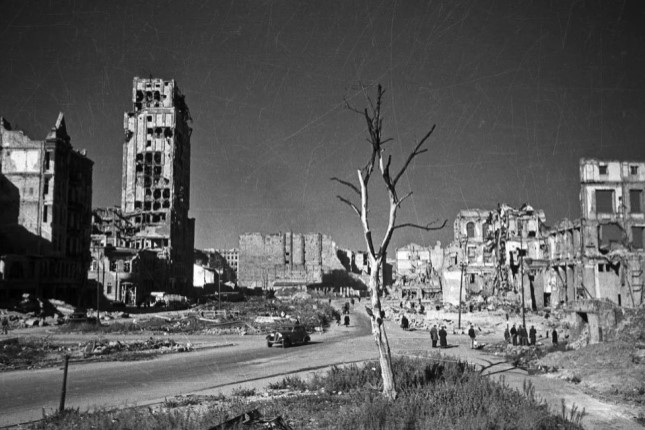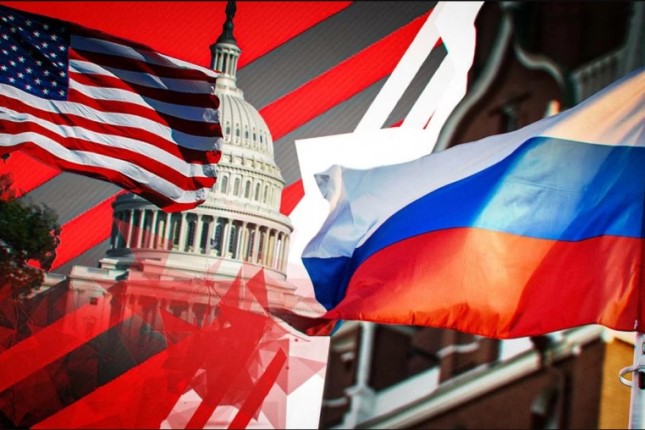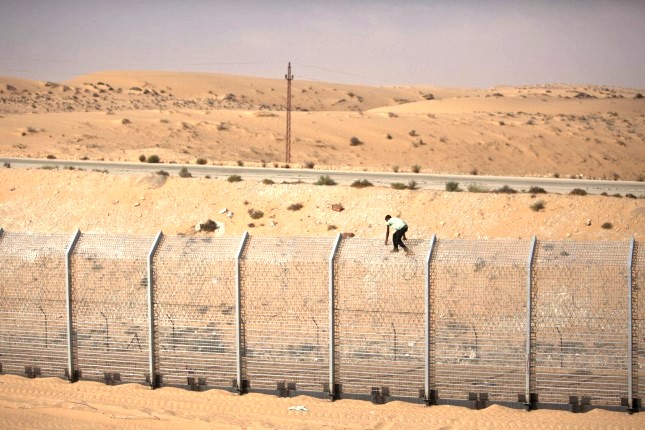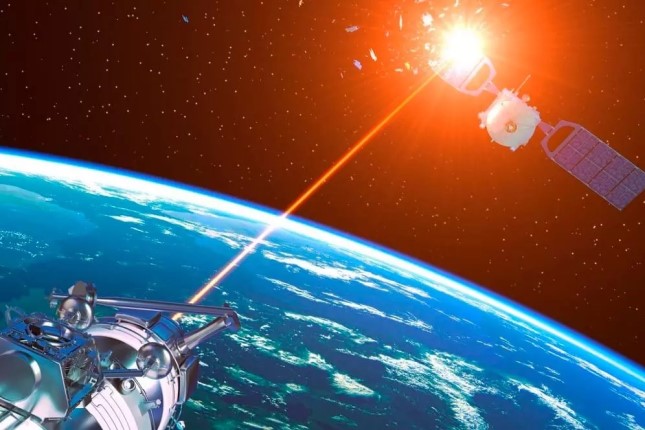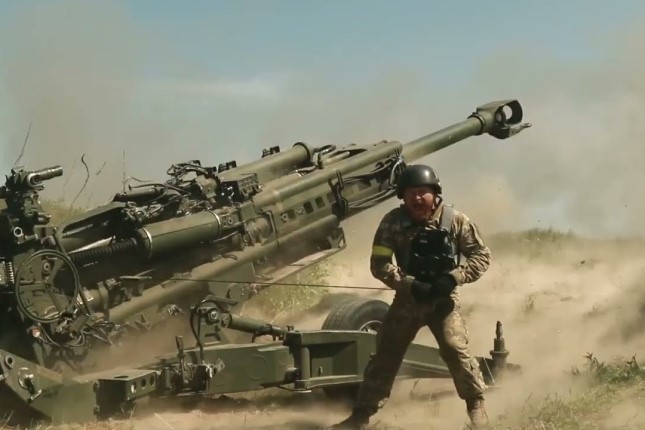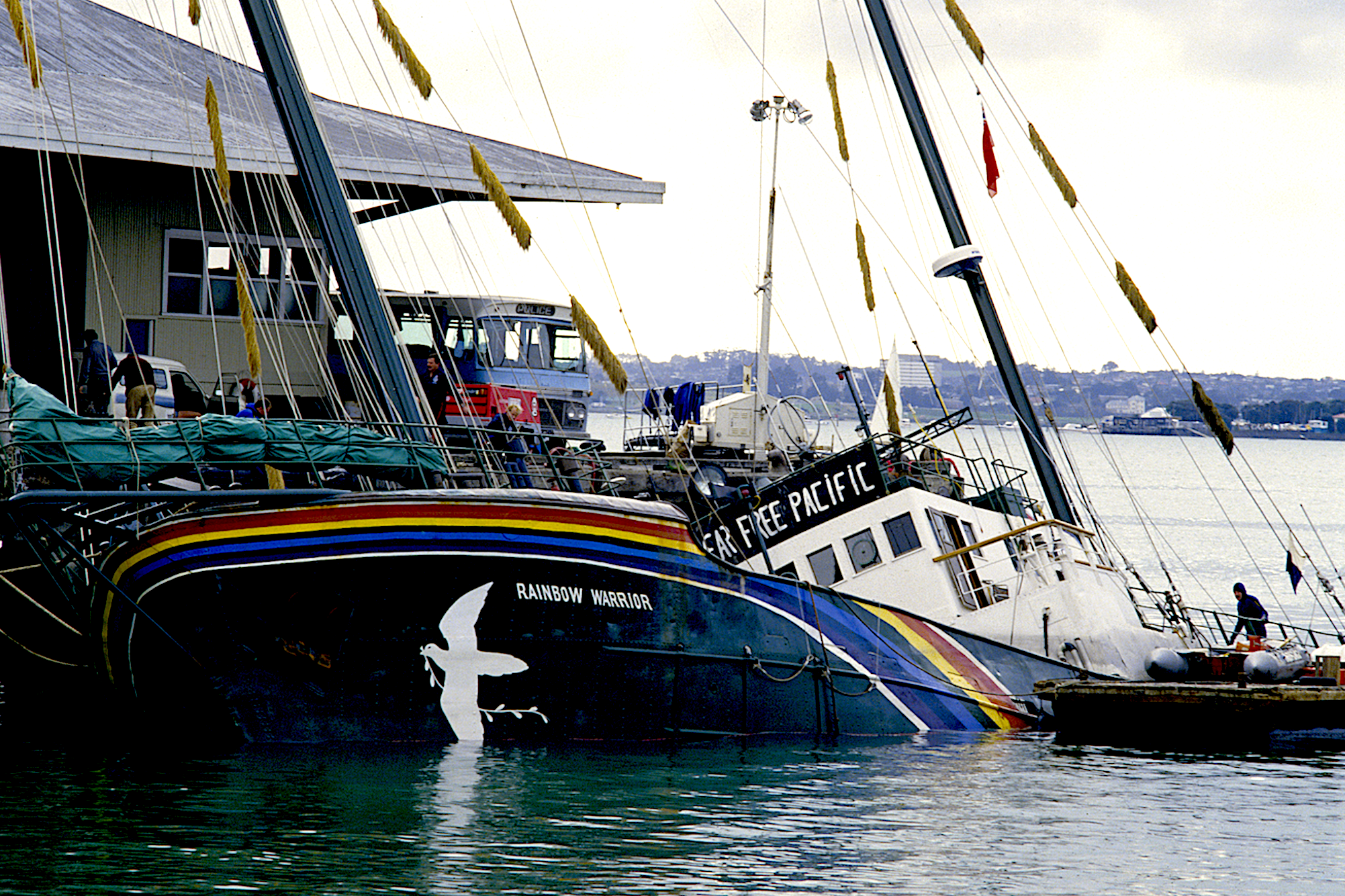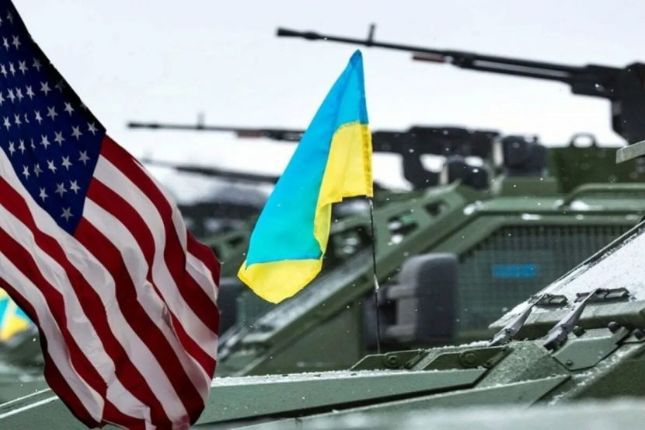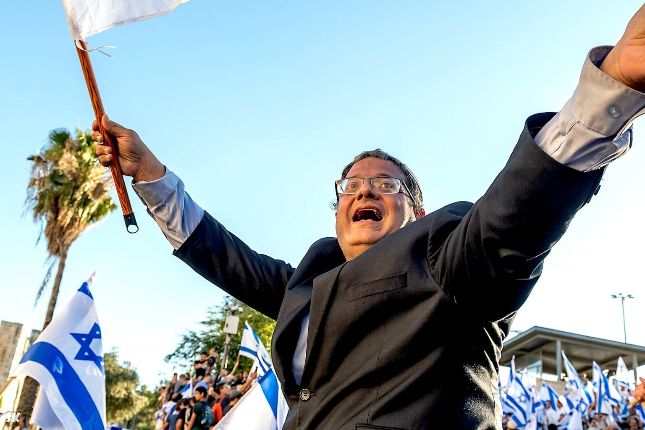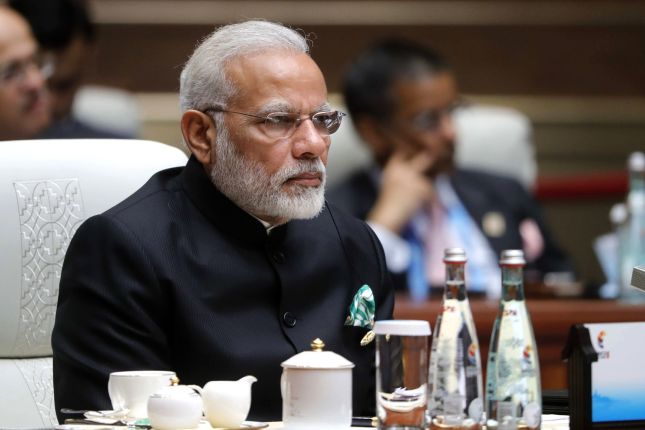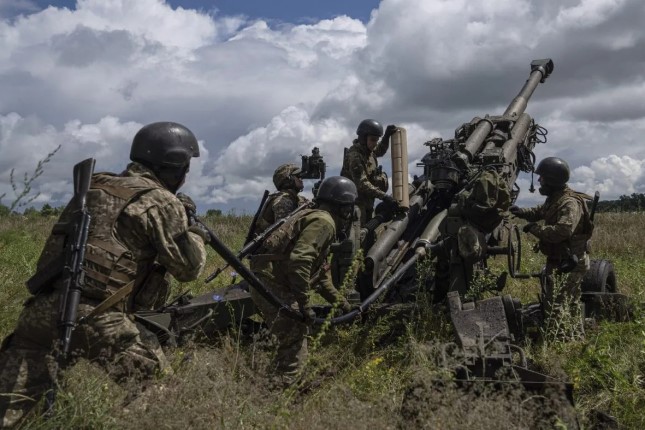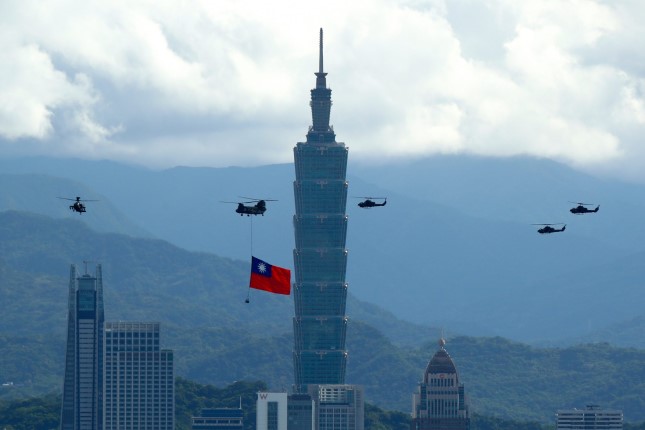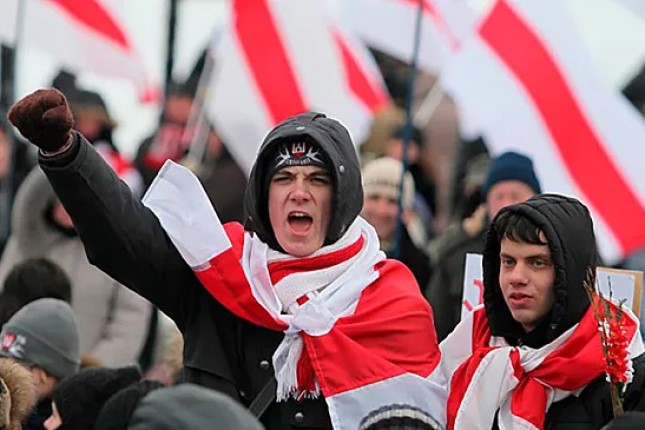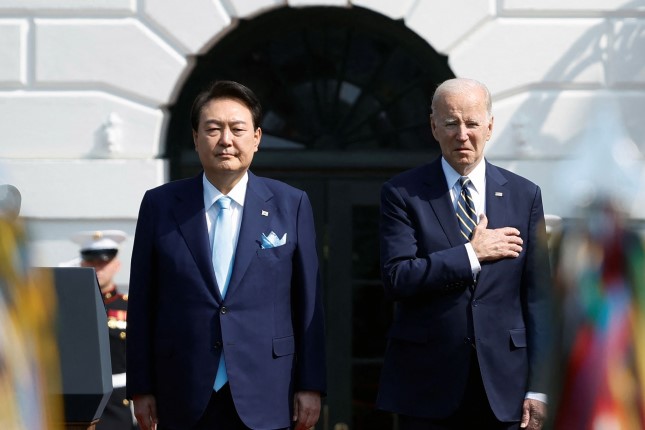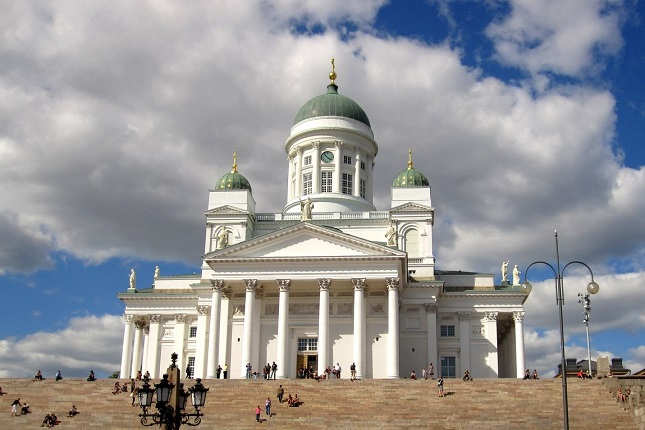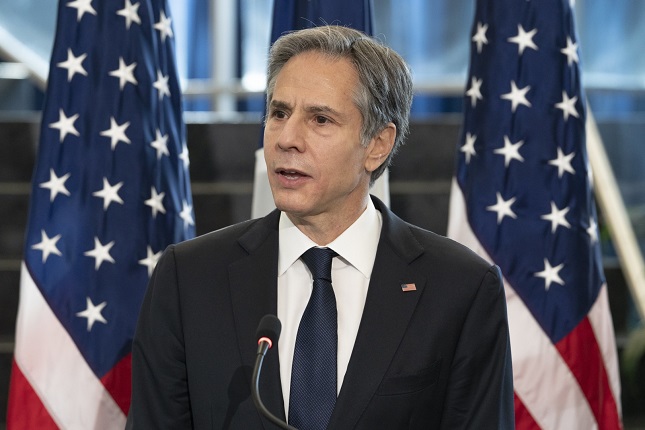How to put an end to the Russia-Ukraine conflict? The world's leading politicians and experts have racked their brains to come up with a solution. Elon Musk, the richest man in the world, has also shared his proposals on Twitter.
- Redo elections of annexed regions under UN supervision. Russia leaves if that is will of the people.
- Crimea formally part of Russia, as it has been since 1783 (until Khrushchev's mistake).
- Water supply to Crimea assured.
- Ukraine remains neutra
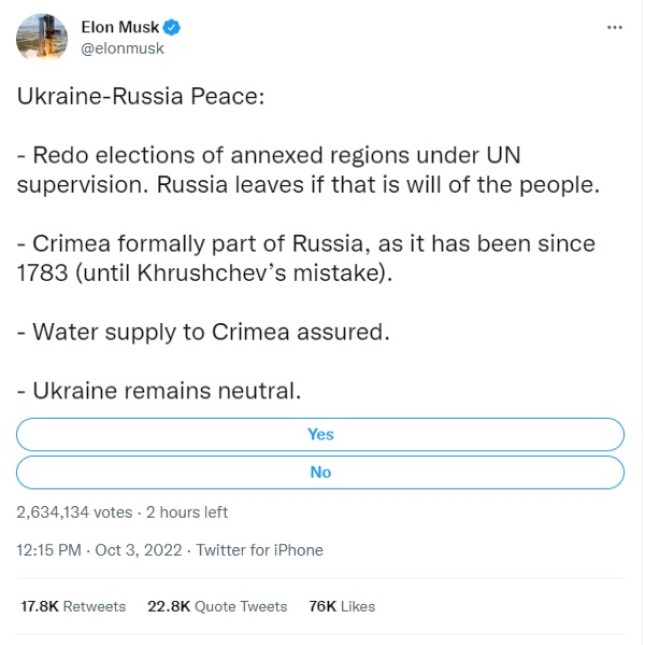
Musk backed up his proposals post with a poll with two options: "Yes" or "No". The impromptu referendum is still going on, but it is already clear that of 2.5 million voters, 60% are against it.
The general public did not appreciate the proposals, given that Musk has 100 million followers. Thousands of angry Ukrainians and sympathisers, as well as Ukrainian officials and President Volodymyr Zelensky personally, have come forward to comment on the billionaire's post.
In another poll, Elon Musk asked followers to react to the opinion: "the will of the people who live in the Donbas & Crimea should decide whether they're part of Russia or Ukraine". The poll received an almost equal number of "yes" and "no" votes. Although Twitter polls do not give the big picture, they still suggest that quite a few people consider Kyiv's claim to the southeast of Ukraine unfair.
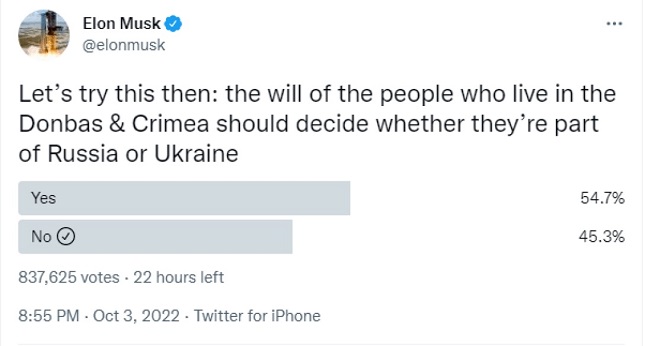
As a result of such a decisive entry into the spotlight of global politics, Tesla stock fell by 9%, and the billionaire was compelled to make excuses for himself. He explained it was just his desire to save millions of lives.
The billionaire reminded Volodymyr Zelensky that Russia's population is three times larger than that of Ukraine, which means the Russian armed forces will prevail should they announce total mobilisation. "If you care about the people of Ukraine, seek peace," Musk wrote.
Elon Musk's peace initiatives deserve the closest of scrutiny. And not just because they come from the eccentric, super-popular billionaire. Rather, it is because they may not be his personal proposals. Musk might only have acted as a conduit for publishing them.
In politics and international relations, publicising certain issues through public figures or mass information channels is a common practice to probe public reactions. Musk likely had his talking points written for him by people deeply involved in the Ukrainian conflict, probably in American power circles.
Moreover, Elon Musk is one of the main sponsors of the US Republican Party, not the extreme-right wing, but the more respectable part of it. He is thus part of the highest political establishment and could well agree to get involved in big world politics. He won't lose much if he does, apart from a drop in the stock price. Rather, he could enjoy the publicity and, perhaps, entertain himself.
Maybe soon we'll see Elon Musk, like Russian billionaire Roman Abramovich, travel around Europe in the role of mediator. Abramovich is doing it out of profound personal interest, while Musk will do it simply out of boredom.
Incidentally, the publication of Musk's proposals came a few days after talks in Turkey between Ukrainian, US, and Turkish representatives took place. The Ukrainian delegation was led by the Head of the Office of the President of Ukraine, Andriy Yermak, and First Lady Olena Zelenska. They were received by Ibrahim Kalin, Turkey's chief presidential adviser, and Jake Sullivan, US national security adviser. The sides have discussed the conditions for starting peace talks with Russia.
There is also a perception among US analysts that, by publishing the peace proposals, Elon Musk was playing against Trump. The latter was about to propose the same ideas but did not make it in time. It is no secret that the former US president, who knows how to promote himself on any international issue, was about to join in the mediation race in the Ukraine-Russia conflict.
Unfortunately, Elon Musk's peace initiatives have come at least eight years too late. Many people are willing to put an end to the conflict in Ukraine, including those in the Russian leadership, but the billionaire's proposals seem entirely unrealistic and unworkable. For either side.
Judging by officials' comments, should referendums on Russian-controlled territories be re-run, Ukraine will take it as a refusal of the international community to recognise its legally-defined borders. And Musk's proposals to accept that Crimea is Russian are like a knife in the back of Ukrainian statehood.
It is unlikely that the Ukrainian leadership will decide to negotiate with Moscow at the moment. And it is not just the public and the AFU, emboldened by successes on two fronts. External interested parties, as some Western intellectuals believe, are ready to fight Russia to the last Ukrainian. The United States is planning to give Kyiv over 1 billion dollars a month for this purpose.
For Moscow, the proposals suggested by Elon Musk are also unacceptable because they put a question mark on the legitimacy of the new territories becoming part of Russia and may cast doubt on the successful outcome of the special operation for Russians. That is, at such a late stage, rolling back for Putin means losing face.
Furthermore, there is a deep mistrust between Russia and the West on the issue of guaranteeing Ukraine's non-aligned status, which rules out any agreement.
Meanwhile, the very fact that such plans for a peace settlement are emerging among Western elites may indicate war fatigue.
